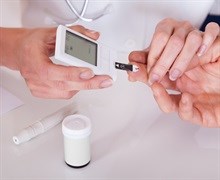
Ramadan, 18 June - 17 July 2015, will see more than 50 million Muslims with diabetes fasting, which puts them in an increased risk of severe.
The Ramadan and Diabetes Patients' Awareness survey found that people with diabetes were prompted to break their fast due to various challenges related to diabetes. These include hypoglycaemia (52%) and (36%) hyperglycaemia (high blood sugar levels), whilst 72 % cited fatigue, dizziness and dehydration. In addition, 49% of the respondents in South Africa reported fasting as challenging or difficult due to their diabetes.
More than 70% of patients with diabetes fasted without supervision from their healthcare professional (HCP) and of these, 24% made their own changes to their treatment regimen. HCPs typically would not change diabetes treatment regimens unless a patient is on two types of insulin; however, HCPs do change frequency, dosage or timing of doses if appropriate.
"It is important for people with diabetes who fast during Ramadan to speak with their doctor prior to beginning the fast," said Dr Lindiwe Pemba, Medical Affairs Manager at Novo Nordisk. "Patients can be assisted to feel more in control of their diabetes through education, increased monitoring and tailoring of their treatment regimen. However; hypoglycaemia remains a major challenge that can disrupt many fasts."
Approximately a third of those fasting during Ramadan with and without HCP supervision (31% and 28% respectively) were worried about hypoglycaemia. The majority of survey participants reported a need for further resources about fasting with diabetes.
"The Ramadan and Diabetes Patients' Awareness survey provides greater insight into communities who fast during Ramadan around the world," said Dr Pemba "The results emphasise the need for more doctor and patient communication in preparation for Ramadan."